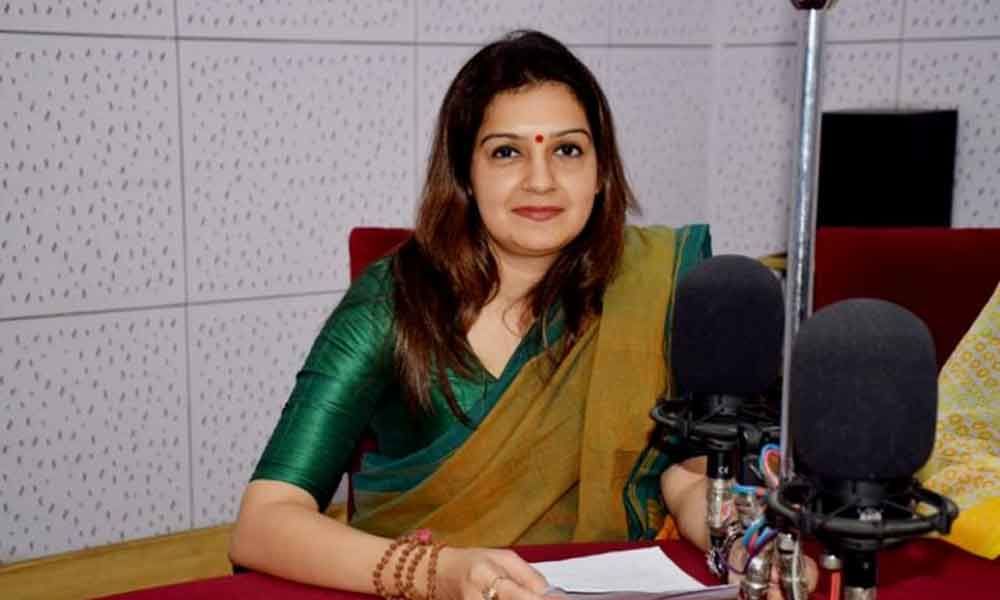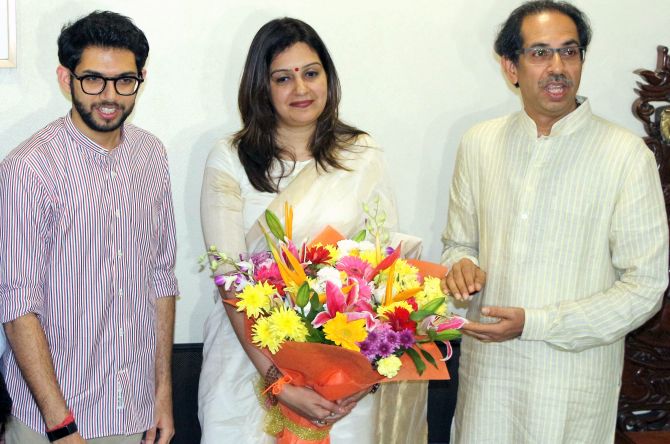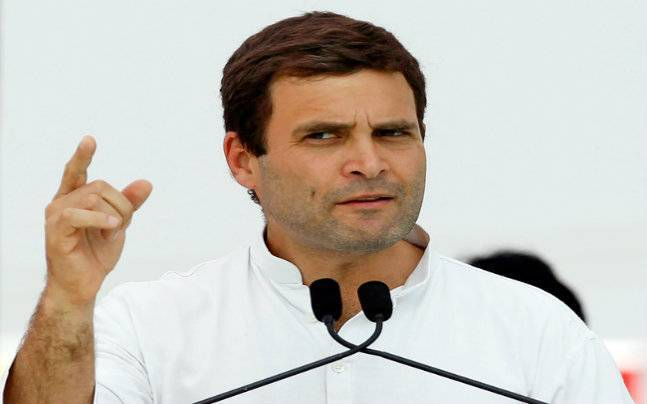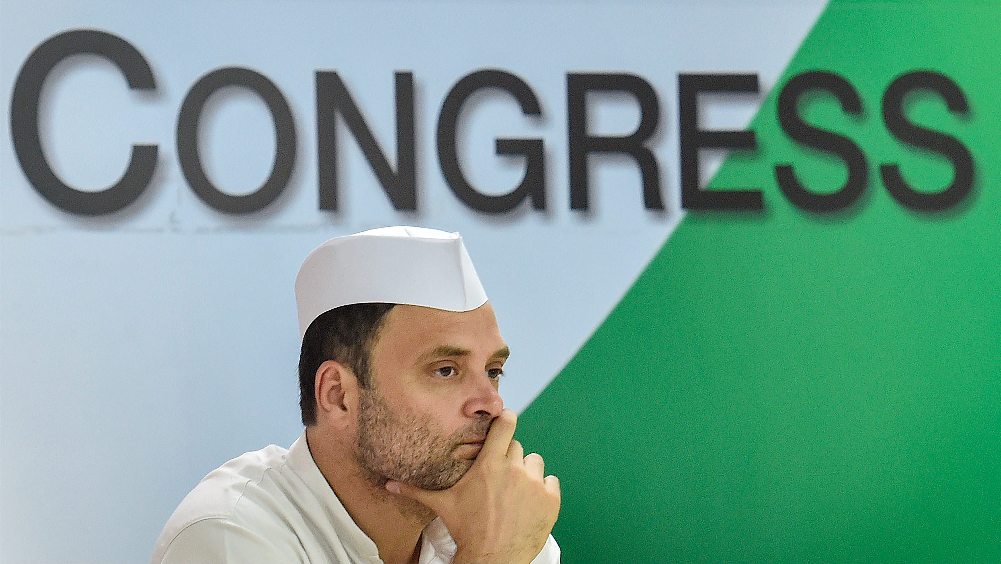It is being said that Priyanka Chaturvedi’s decision — the high-profile Congress national spokesperson and media cell convenor quit her party and joined the Shiv Sena because she no longer felt safe, valued and able to carry on with her work in dignity within the Grand Old Party — is an example of ideological duplicity and opportunism. It is as if her concerns over misogyny and lack of respect for women rampant in Congress’ internal culture, issues that made her take this step, ceased to matter the moment she walked into the rival camp.
Within hours of Chaturvedi’s decision, Congress’ national spokesperson Sanjay Jha had this to say on Twitter: “Within 48 hours Shiv Sena, alliance partner of #BJP, has no “goons” in it. Awesome! Kya baat hai! Political opportunism touches a new nadir. The self-righteous bullshit is sickening. But hey, tomorrow is another day.”
The reason being provided for this phony argument is that if Congress encourages goons by rewarding them instead of punishing them, then Shiv Sena is no better and muscle-flexing is more ingrained in Shiv Sena’s brand of politics. This argument is specious, and a straw man aimed at obfuscating the real issue and diluting the charges against Congress.

It is nobody’s argument that Shiv Sena doesn’t harbour goons. Goon-and-gun culture is prevalent in every political party. In varying degrees, almost every Indian political outfit uses goons as a veritable tool to wield influence. For a party in power, goons become an unofficial extension of the State. They run a parallel administration. The situation is grimmer in states where regional outfits are in power such as in West Bengal.
The issue of crime in Indian politics and why money and muscle are the preferable route to electoral power has been the subject of much scholarly debate. Milan Vaishnav, a senior fellow at Washington DC-based Carnegie Endowment who has written on a book on this subject (When Crime Pays), argues that when a ”government is unable to fulfill its basic responsibilities and social divisions are rife, voters seek refuge in strongmen who can deliver what the State cannot. This nexus is not necessarily unique to India; it shows up in democracies across the globe, from the Philippines to Pakistan.”
Remember, Chaturvedi did not walk out of Congress because of a generic aversion towards the Grand Old Party’s culture of tolerating goons. She cannot lay claim to that moral high ground. Had that been the case, the charge of duplicity against her leveled by a section of media and some members of her former party would have been valid. It is worth noting that Chaturvedi, in her resignation letter and at a news conference two days prior to announcing her decision, leveled specific charges of misogyny against her party. She accused the Congress of reinstating some leaders who had “attacked” her, behaved as “lumpen goons” and allegedly threatened her with rape and said that she felt let down by her party’s actions.
On Wednesday, Chaturvedi posted on Twitter that she was “deeply saddened that lumpen goons get preference in @incindia over those who have given their sweat and blood. Having faced brickbats and abuse across (the) board for the party but yet those who threatened me within the party getting away with not even a rap on their knuckles is unfortunate.”
The decision to reinstate the eight leaders against whom Chaturvedi brought specific charges of threat, intimidation and attack was taken by Jyotiraditya Scindia, who is in charge of the campaign in west Uttar Pradesh. Chaturvedi’s “appeal to the Gandhis also did not work” leading her to feel “that she was not given the respect she deserved.”
In his defence, Scindia said the suspended leaders “apologised”. Since when has a mere apology been enough to reinstate individuals who have leveled such serious threats against a woman and a party colleague? Congress encouraged this act of misogyny by reinstating the cadres against whom Chaturvedi brought charges. And the party’s high command is complicit in this act by its dint of silence.

At a news conference in Mumbai, seated alongside Shiv Sena chief Uddhav Thackeray, Chaturvedi said she was “pained by the fact that some party members who made certain remarks about me were reinstated. It was forgotten that a woman like me dedicated 10 years without any greed or expecting returns. It was a matter of self-respect for me and I did not want to let down all those women for whom I spoke”. She said she let her grievances be known to the party’s high command, but refused to answer whether the central leadership tried to prevent her from resigning.
In her resignation letter, the former Congress spokesperson brought two damning charges that reveals Congress culture and exposes party chief Rahul Gandhi’s tall claims on women’s empowerment as a mere sham.
In the letter sent to the Congress president, Chaturvedi wrote: “In the last few weeks certain things have convinced me that my services are not valued in the organisation and that I have reached the end of the road. At the same time I also feel that more time I spend in the organisation will be at cost of my own self respect and dignity.”
“What saddens me is that despite the safety, dignity, empowerment of women being promoted by the party and has been your call to action the same is not reflected in the action of some of the members of the party. A serious incident and misbehaviour against me by certain party members while I was on official duty for the party has been ignored under the guise of all hands needed for elections. This indignity to me has been the final factor to convince me to move on and focus on other things outside INC.”

The letter leaves Rahul, who has, on numerous occasions and very recently in Chennai claimed that Congress assures “women of India that we will stand with them and we will do everything in our power to empower them and ensure they get their rightful place in our democracy and economy”, with very little defence. During that interaction with students in Chennai, the Congress president also promised 33 percent reservation for women in government jobs and Parliament if voted to power, and urged women to be “fearless in claiming their space.”
It is interesting that Rahul promises 33 percent reservation for women if voted to power when its working committee — its highest decision-making body that was reconstituted last year — has only seven women among 51 members and only three, including his mother, in the main body.
The second issue that emerges from Chaturvedi’s letter is the fact that Congress was and remains a party of and for dynasts. Chaturvedi is widely acknowledged to be a feisty spokesperson who defended her party vigorously during debates or any other fora. She was perceived as a hardworking and dedicated party worker destined for a greater role within the party. Contrast her fortune with that of her namesake, Priyanka Gandhi Vadra, and the intrinsic nature of a dynastic party becomes clear.
In failing to retain an important member of the party by adequately addressing her grievances, Rahul has proven that his protestations in favour of women’s rights and empowerment is a sham: much like many other aspects of his politics.




